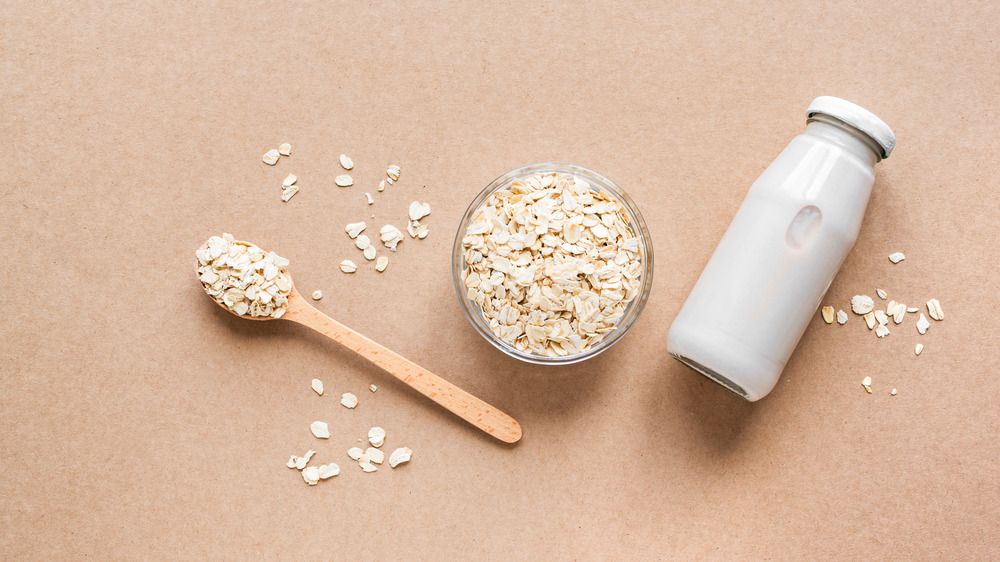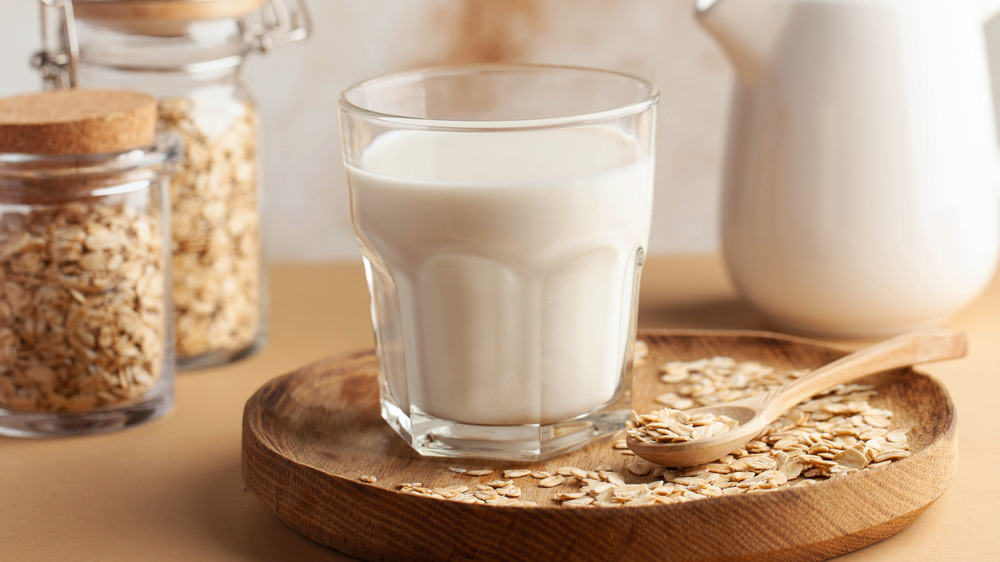Is Oat Milk Really Better For You Than Almond Milk?
If you're lactose intolerant, the very popular almond milk may be your go-to choice. But another alternative exists, and it just might be better for you than almond milk. Oat milk is becoming more available across the nation, and Health Digest spoke with an expert to weigh the pros and cons.
Abbie Gellman is a registered dietician and chef at the Institute of Culinary Education. She says almond milk has many benefits, including in cooking. "Almond milk is low in fat and calories, making it a great base or addition to a variety of dishes. It has a neutral flavor, but still adds a creamy mouthfeel and hint of nuttiness. It does well in smoothies, soups, sauces, dressings and baked goods, to name a few," she explained.
Oat milk is very similar, and is the natural choice for people with one serious health condition. "Oat milk has a creamy texture and neutral flavor as well, but it is a great option for someone with a nut allergy. It can be used in all the same ways one would use almond milk," said Gellman.
Watch out for this when choosing oat milk
One thing to note is that oat milk is higher in carbohydrates and calories than almond milk, so you may want to adjust your consumption to accommodate your own daily nutritional needs. The trade off is that it has more protein and fiber than almond milk, according to Gellman. For both options, she advised, look for unsweetened versions so you don't get added sugars.
Returning to the nut allergy: for people who have them, oat milk is obviously the better choice. It should also be gluten-free, but Gellman advised double-checking the product labeling to be sure.
"Almond milk and oat milk are both great for people looking for plant-based options. Oat milk has slightly more carbohydrates and calories, so if you're looking to lose weight or cut calories, unsweetened almond milk may be a better choice." But really, you can't go wrong with either. "They both have similar amounts of nutrients added by the manufacturer to fortify the beverages that do not naturally occur (examples: calcium, vitamin D)," said Gellman.


